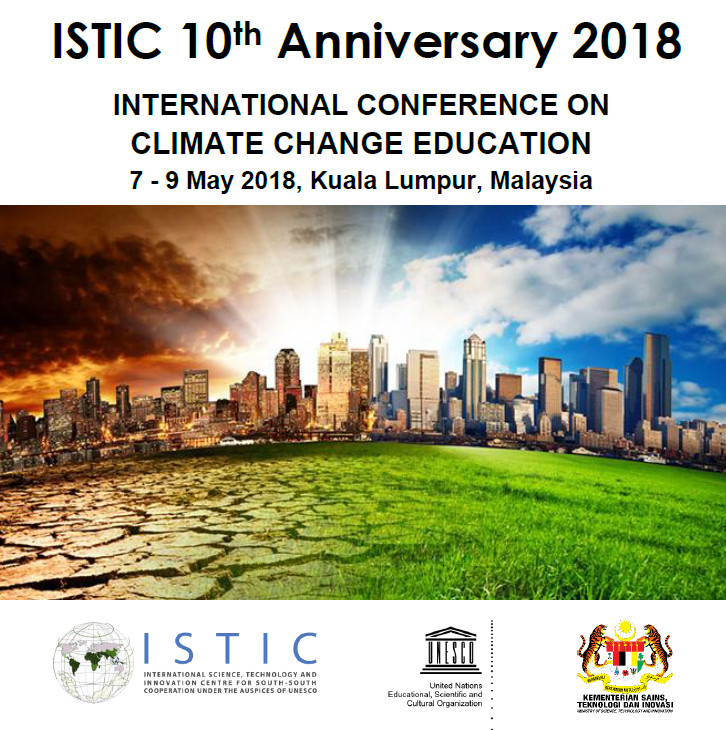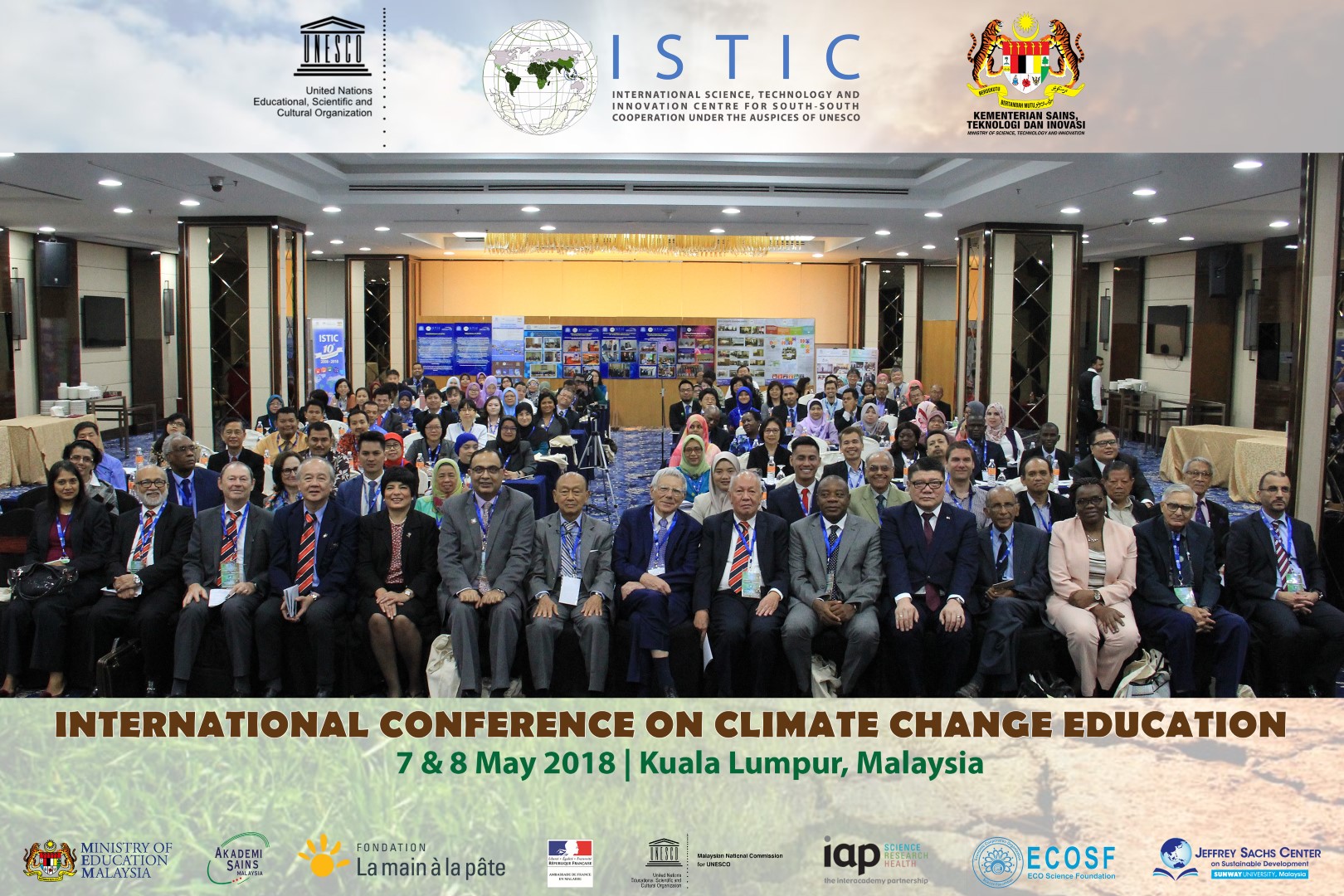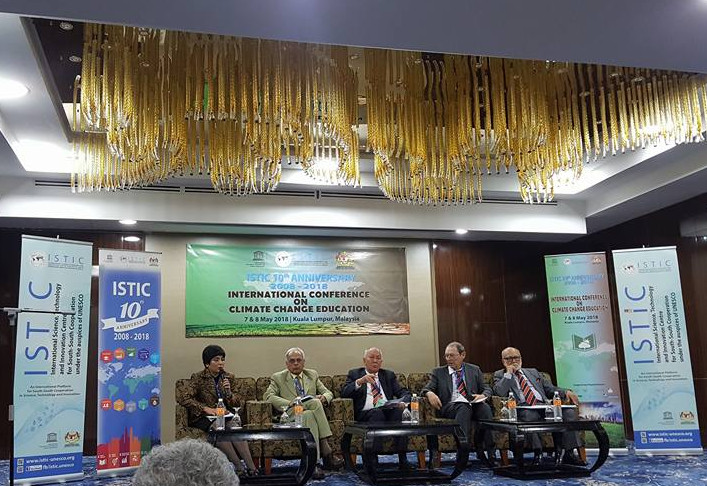
The International Science Technology and Innovation Center (ISTIC), a UNESCO Category 2 Center celebrated its 10th anniversary with a conference on Sustainable Development Practices in Climate Change Education in Kuala Lumpur, Malaysia, 7-8 May 2018.
ISTIC is a partner of the World Federation of Engineering Organisations and signed a Cooperation Agreement with WFEO for collaboration in engineering education.
The conference featured a wide range of international speakers and focused on The UN SDG 4 – Quality education – and SDG 13 – Climate action –.
Speakers and moderators included:
- Datuk Seri Dr. Mohd Azhar Bin Hj. Yahaya, Secretary General, Ministry of Science Technology and Innovation (MOSTI) representing Minister of MOSTI;
- H.E. Nico Barito, Special Envoy of President of Seychelles for ASEAN Countries and Director of Regions 20 Asia-Pacific;
- Dr. Marlene Kanga, President WFEO;
- Prof. Pierre Lena, Co-Founder, LAMAP Foundation;
- Prof. Wu Qidi, Former Deputy Minister of Education, China;
- Dato’ Ir. (Dr.) Lee Yee Cheong, Commissioner, UN Broadband Commission for Sustainable Development;
- Prof. Datuk Dr. Asma Ismail, President, Academy of Sciences Malaysia;
- Tan Sri Dato’ Academician Ir. Dr. Ahmad Zaidee Laidin, Secretary-General, Academy of Sciences Malaysia;
- Dr. Mustafa El Tayeb, President, Future University Sudan/President, UNESCO Science Commission 2017-2019;
- Prof. Daniel Rouan, Chair, LAMAP Foundation;
- Prof. Dr. Abhimanyu Veerakumarasivam, Chair, Young Scientist Network, Malaysia;
- Mrs. Wafaa El Alami, Head of ISESCO Centre for Promotion of Scientific Research (ICPSR);
- Prof. Manzoor Soomro, President ECO Science Foundation, Pakistan;
- Prof. Emeritus Harold Ramkissoon, Chair, CSTIC & President Emeritus CARISCIENCE
The illustrious gathering of speakers and delegates recognised that sustainable development principles should be considered to be a key element of climate change education, especially in science, technology and mathematics education.
It is important to teach children the basics of science in primary school and for young people to understand that the resources of our planet are limited and must be used wisely. Education will empower young people to develop innovative solutions to addressing the challenges of climate change and of using the limited resources of the planet for the benefit of all.
It was also agreed that countries in the South South region are going to be severely impacted by climate change and must co-operate to lead strategic changes for a better world.
The conference recognised that equal access and participation of all young people, who are nearly one-third of the world’s population, including those in rural areas, indigenous communities and women and girls to education and training in science and technology is essential.
There was general agreement that women, representing half of the world’s population, need to be empowered to make a crucial contribution to progress across all the goals and targets of the 2030 Agenda for Sustainable Development, especially for action to solve the problems of climate change. The conference concluded with s asset of recommendations that were agreed by all participants and will be distributed after being finalised.
Report by Dr. Marlene Kanga, WFEO President
For more information:
ISTIC website
ISTIC 10th Anniversary celebration and Conference brochure
WFEO / ISTIC Cooperation agreement
MAY
2018



